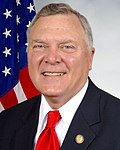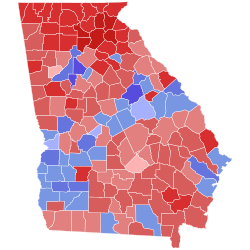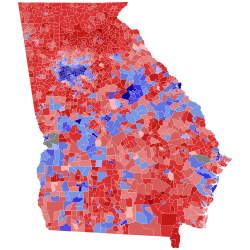| |||||||||||||||||
| |||||||||||||||||
Deal: 40–50% 50–60% 60–70% 70–80% 80–90% >90% Barnes: 40–50% 50–60% 60–70% 70–80% 80–90% >90% Tie: 40–50% 50% No data | |||||||||||||||||
| |||||||||||||||||
| Elections in Georgia |
|---|
 |
The 2010 Georgia gubernatorial election was held on November 2, 2010. Incumbent Republican governor Sonny Perdue was term-limited and unable to seek re-election. Primary elections for the Republican and Democratic parties took place on July 20. Democrats nominated former governor Roy Barnes, and Republicans nominated Representative Nathan Deal following a runoff on August 10. The Libertarian Party also had ballot access and nominated John Monds. Deal won the general election, and took office on January 10, 2011. [1]
Contents
- Republican primary
- Candidates
- Polling
- Results
- Democratic primary
- Candidates 2
- Polling 2
- Results 2
- Third party and independent candidates
- Independent
- Libertarian Party
- Write-in
- General election
- Predictions
- Polling 3
- Results 3
- See also
- References
- External links
As of 2024 [update] , this was the last election in which a candidate won the governorship by double digits. This is the first gubernatorial election in Georgia since 1990 in which the winner was of a different party than the incumbent president. This was the first election in which Republicans won three consecutive gubernatorial elections in the state. This was the last gubernatorial election in which Douglas, Henry, and Newton counties voted for the Republican candidate and the last in which Baker, Early, Mitchell, Peach, Clinch, Brooks, and McIntosh counties voted for the Democratic candidate.






